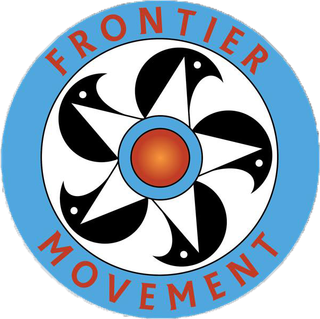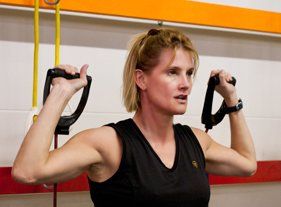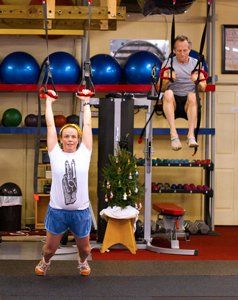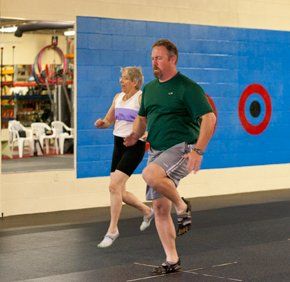Weight Loss - Sustainability
- By Chris Hardwicke
- •
- 01 Jul, 2018
- •
If the method you choose for weight loss, diet and/or exercise is not SUSTAINABLE you cannot keep the weight off. Permanent weight loss requires permanent lifestyle change.

If the method you choose for weight loss, diet and/or exercise is not SUSTAINABLE you cannot keep the weight off. Permanent weight loss requires permanent lifestyle change.
How often have you heard someone say “I am going to go on the Atkins diet for a couple of months and lose this weight?” Possibly you know someone who used a weight loss drug and lost a ton of weight, then blew up like the Goodyear Blimp. Often you will hear people say that a particular diet “worked great before!” If a weight loss plan worked great, you would not need to do it again because the weight would still be gone. All diet plans are capable of producing weight loss. Keeping it off is the real goal.
I only study those who have kept their weight off 5 years or more. Otherwise what you have is not weight loss, but more like a “weight loan,” which owing to adaptation, will be paid back with interest!
Many diets would have you pretend that you can do something radical now and back off later in “maintenance” phase. In my experience of working with weight loss clients, the very behavior that takes the weight off must be maintained in order to keep it off. If you can add back a certain food later and not gain weight, you gave it up unnecessarily in the first place.
If you are going hungry all the time it may occur to you that this is not sustainable behavior. If you are running 40 miles per week you will likely have a repetitive stress injury or just plain burnout. Weight loss drugs have increasingly negative side effects which require us to stop taking them or risk our lives. How does the SUSTAINABILITY principle play out with food and exercise?
If you have not read the Adaptation section you are excused to do so now. To recap: Subject gaining a pound a day on a 2000 calorie per day diet. Subject cut calories to 1000, lost weight but progressively slower until adaptation or plateau. Right here begins the sustainability question. Can you live on 1000 calories per day? If you can, you will likely maintain your weight loss for a very long time. It is far more likely that you will eat more on occasion, “cheating” in diet lingo, and slowly watch your weight return. Like the story of the little Dutch boy with his finger in the dyke, every time you step away from your diet, a little weight will “squirt” back on your tummy.
How about exercise? If you have lost some weight running 5 miles per day 5 days per week at 8 miles per hour, you must ask yourself a question. Can I continue to do this in order to maintain my loss? I call this one “Doing the Oprah.” Remember, in order to simply maintain the weight loss you must gradually increase your speed or distance because as you adapt you will burn less and less fuel.
Sustainability dictates that the tortoise ALWAYS beats the hare at permanent weight loss. We Americans are not a patient bunch. If I advertised a diet program that produced 1 ½ pound a week loss and even less for veteran dieters (better adapted to famine), I would not have many takers. But that is what you must do.
In studying successful losers, those maintaining losses for over 5 years, this is what you see. Remember that this would produce 75 pounds per year! SUSTAINED weight loss over two pounds per week is RARE. The slower programs do not create a big starvation response and the less radical behavior changes are much more likely to be sustainable. Radical behavior begets a radical Adaptation.
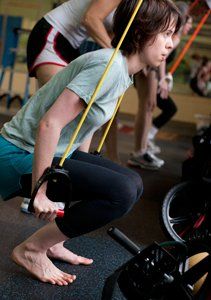
We are fight or flight, hunting and gathering animals. In our DNA are all the tools for energy creation. Through the Kreb’s cycle, we can convert ALL food to energy. We can live in excess of 40 days on water alone. We can walk 300 miles without anything other than water. Though it is occasionally not evident, we are the most highly evolved animals on Earth.
To better understand how we create more energy, we would do well to visualize a spiral. If we follow the line of the spiral we see that it moves up and then levels out, reaching an ever-increasing height. The same is true when we create energy. Our energy levels cannot simply rise straight up. We must also level out to create energy (rest).
If you have been sedentary for a long time and one day you decide to go jogging for a couple of miles, you will be tired for several days after. You will need to rest. Tiredness is the downside of the spiral. From just that one run, you have created more energy that is yours to use AFTER recovery. This increased energy is the upswing of the spiral. If you continue to run and rest, the spiral will go up and level out with the net result being a gain in energy. Our heart becomes bigger and our lungs more toned, the relevant jogging muscles are stronger and more efficient.
To return to our car analogy, our engine has become bigger and stronger. When running a couple of miles no longer challenges us we have ADAPTED to our running regimen. At this point, if we do not run faster, farther or longer we will not continue to increase our energy. Our current level of running will MAINTAIN our current level of ADAPTATION (energy level). If we stop running we will gradually go back down the spiral. If we do not allow for full recovery through proper sleep we will also see a drop in performance. Sleep is an important part of the leveling out of the spiral.
In a nutshell, we must work hard enough to go higher “up” the spiral, and then rest, through which we will adapt to higher and higher levels of energy.

You can feed all the fuel you want to a weak engine and it will still not go faster. You can cleanse the fuel lines all you want and you will not increase YOUR performance if your engine is small and weak.
We have total control of our energy level. We are responsible for creating our own energy. If you do not have any, you have created the weak engine I am talking about. It is very easy to look to cleanses and supplements, but a strong engine can run very well for a long time on junk food, much as putting cheap gas in your car often takes 100,000 miles to have a negative effect.
In our car analogy, we fixed everything but the engine and still we had no better performance. A big difference between human engines and car engines is that if you park your car in the garage for a few years, the engine remains just as powerful. The human engine, however, will actually shrink. Your entire system can get clogged by parking it on the couch too long and not taking it out for a good drive once in a while. If you only drive it to work and back it won’t continue to run well for long. You will see what I mean when you finally “floor it” and black smoke pours out of the exhaust! It may even stall! Quick, before it’s too late, let’s make this thing run right, faster, and longer.
Why don’t you have some coffee, sugar, or fruit? That ought to pick you up! How about an energy drink with some wild sounding jungle herbs? Most of us regularly look for energy in a particular food or drink and we are eventually forced to acknowledge that it does not work.
We have an epidemic of blood sugar problems (hypoglycemia) that affect an estimated 60% of this country. In fact, most companies give workers a break at 10 a.m. and often this is not because they are generous, but productivity has markedly slowed. At this point you have only been at work for two, at most three, hours! Certainly you are not already out of energy. Notice that your break room is filled with caffeine, candy, and salty and sweet carbohydrates in hopes of kicking you back into productivity.
Further notice that the great ‘medication stations”—convenience stores— that are filled from one end to the other with these items! I can fix your “Blood Sugar” problem such that you can fully access energy you already have, but that will NOT create more!
Many alternative modalities promise to remove “blocks” to your energy or increase the flow of energy. Often “cleansing” of some type is recommended. Notice that removing blocks and increasing FLOW are NOT the same as creating MORE energy. For a better understanding of energy, I shall use a car for my analogy.
Let’s say that the tube that carries gasoline to the engine (the fuel line) is clogged. The car runs poorly. When you clear the “blockage” you “increase the flow” of fuel to the engine. While this is important and I often recommend energy-flow work, you will NOT have MORE energy, but full access to the energy you already had.
How about if the carburetor is not mixing the air and gasoline correctly? Again the car runs poorly. Many vitamin and supplements companies make “increased-energy” claims based on improving your fuel mix. While supplements and diet can sometimes correct nutritional deficiencies, you will only have better fuel, not more fuel. This is very important as better fuel is necessary for high performance. Many people in third world countries suffer from malnutrition and cannot perform well. However, you and I are likely getting everything we need for our day-to-day performance and even our “weekend warrior” athletics. Body builders, high school, college and professional athletes may well need supplements if their diet is less than perfect but I’m willing to bet that quality fuel is not your problem.
For now, let’s assume that your fuel system is clean enough and you eat a good enough diet. If this is the case, and most often it is, the cause of your lack of energy is that your motor is small and inefficient and that nothing you put in the gas tank can change that!
